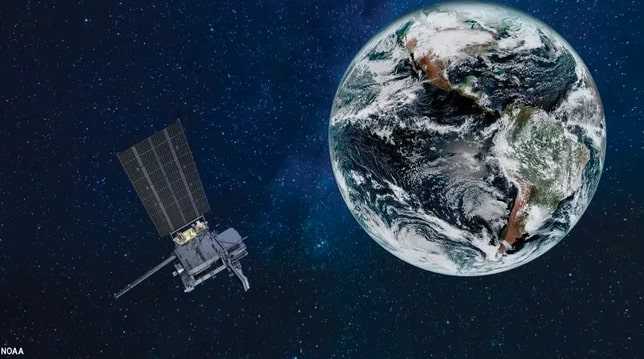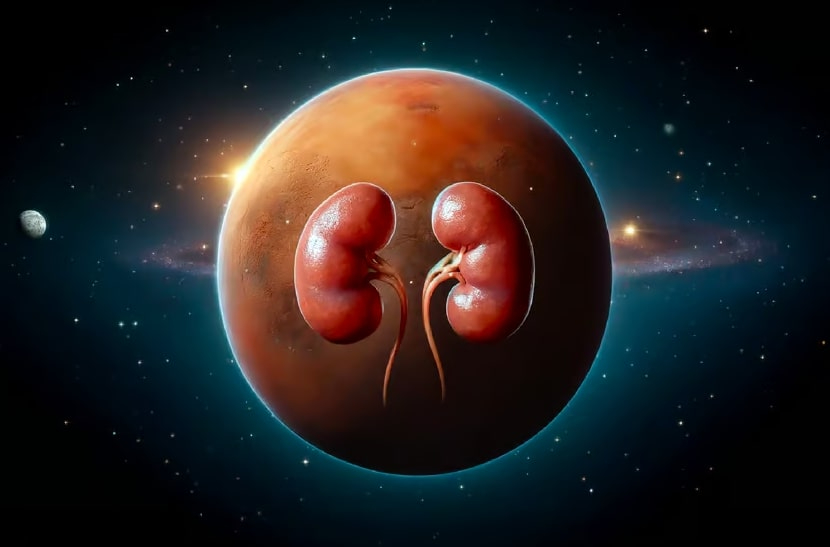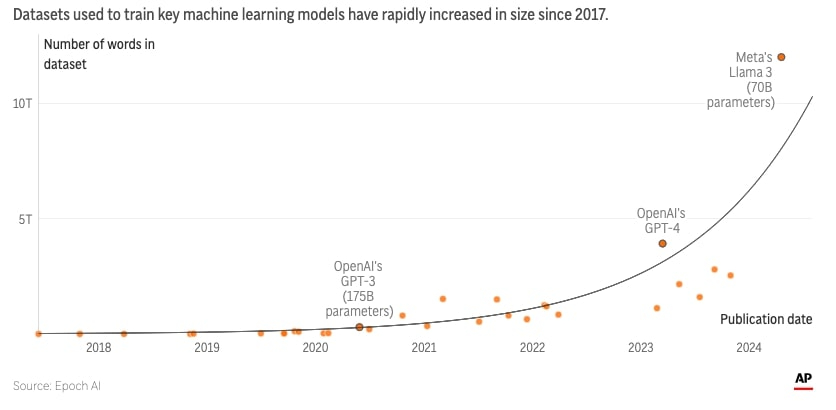A next-gen US satellite is poised to revolutionize weather forecasts

Image: NOAA
NASA is preparing to launch a new weather Nostradamus of sorts later today, in the form of a high-tech satellite created by the National Oceanic and Atmospheric Administration (NOAA).
The new satellite, called “GOES-U,” marks the 19th version of the NOAA’s GOES satellite series, which has been feeding scientists a steady flow of weather-related data from space since 1975. GOES-U carries state-of-the-art equipment the NOAA says will revolutionize how scientists forecast weather events – both on Earth and in space.
On Earth, the new satellite will serve as a vital tool for:
- Tracking hurricanes and forecasting their intensity
- Providing early warnings of severe storms and tornadoes
- Collecting data to help reduce weather-related flight delays
- Monitoring ocean surface temperatures
- Lending a hand to Smokey Bear and identifying lightning strikes most likely to ignite wildfires
And when it comes to space weather, GOES-U will be just as important. The satellite carries specialized equipment that can detect major solar flares and other space radiation before it reaches Earth, then warn communication systems and power grids of potential disruptions.
- This includes the Compact Coronagraph, which provides up-to-date solar flare data every 30 minutes instead of every eight hours (the current pace) – allowing scientists to predict solar storms 1-4 days ahead of time.
👀 Looking ahead… SpaceX, which is contracted to place GOES-U in orbit, has a two-hour launch window starting at ~5 pm ET this evening. If everything goes according to plan, the NOAA says GOES-U will operate until the next generation of satellites is ready to take over in the mid-to-late 2030s.
Share this!
Recent Science & Emerging Tech stories


Science & Emerging Tech
| June 20, 2024Humanity’s ambitions for Mars received a major kidney punch
🚀🤔 NASA will likely have to rethink its current plans for placing the first astronauts on Mars, according to a new study.

Science & Emerging Tech
| June 18, 2024What happens when AI models run out of training data?
🤖✍️ Major AI systems could soon run out of publicly available training data written by humans, which would present major challenges for AI firms seeking to maintain their current pace of progress
You've made it this far...
Let's make our relationship official, no 💍 or elaborate proposal required. Learn and stay entertained, for free.👇
All of our news is 100% free and you can unsubscribe anytime; the quiz takes ~10 seconds to complete